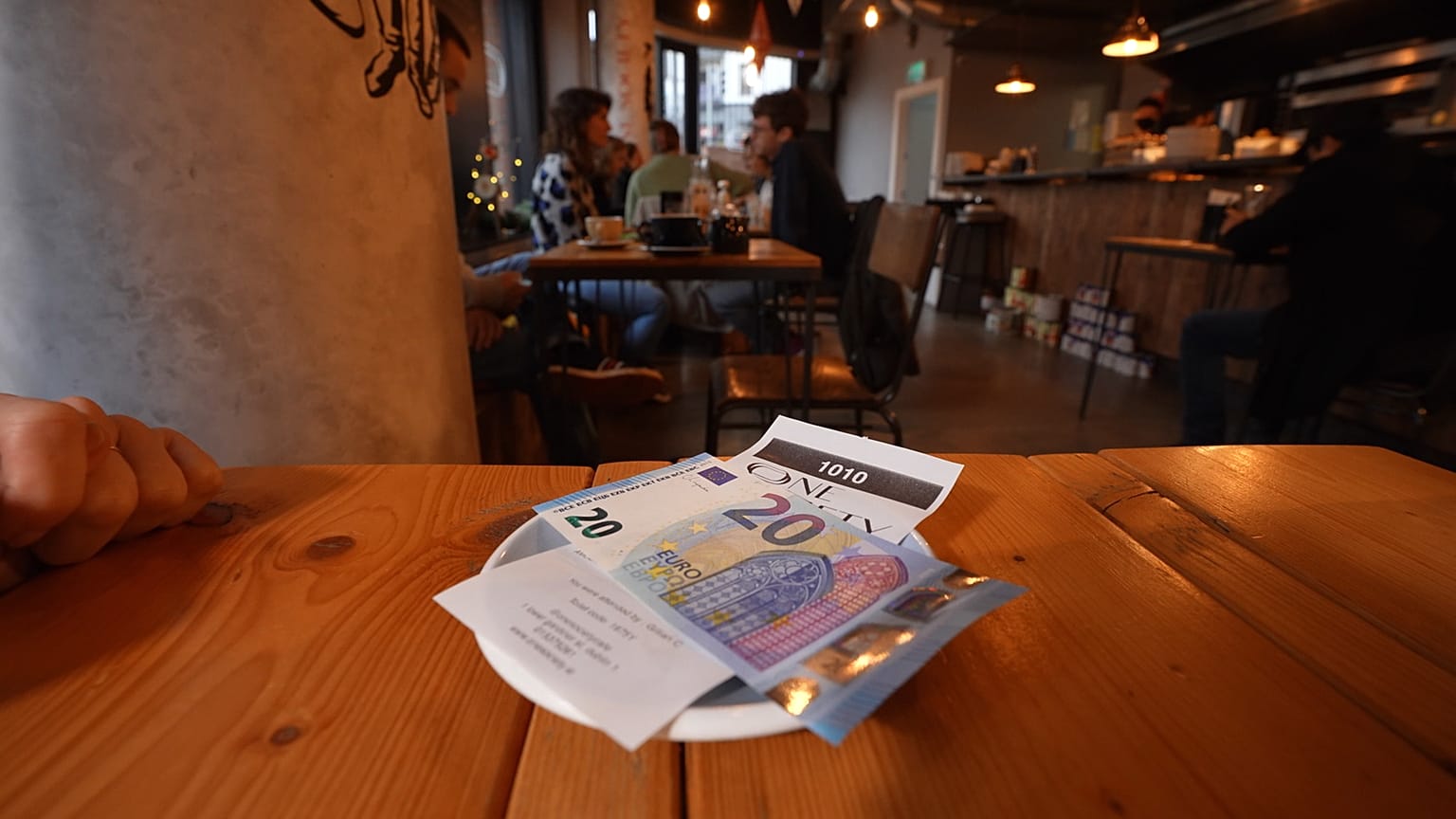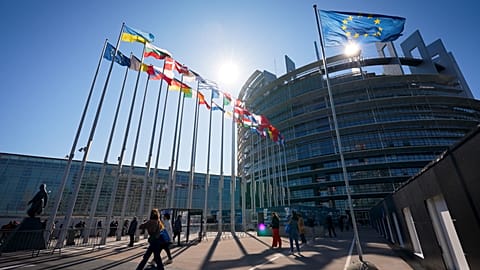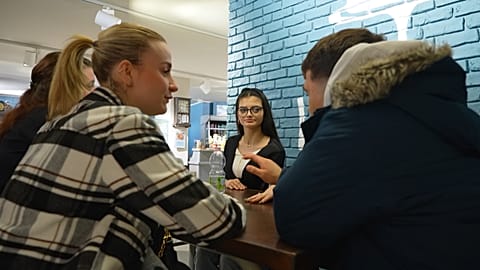It was 20 years ago that euro coins and notes first appeared across the continent. Two decades on, what has the single currency meant for our economies and businesses?
In this episode of Real Economy we ask: what has the single currency meant for European economies and businesses two decades on?
 ADVERTISEMENT
ADVERTISEMENT
 ADVERTISEMENT
ADVERTISEMENT
Euro banknotes and coins were first introduced in 12 European countries on 1 January 2002, replacing their national currencies.
The euro had existed for three years before, although only in electronic form. Twenty years later, 19 countries and more than 340 million Europeans use the euro.
The aim of the euro was to make life simpler, using the same currency for work and business throughout the euro area and for travel and living abroad. The strong international role of the euro is also intended to protect the EU economy and financial system from foreign exchange shocks, reduce reliance on other currencies and ensure lower costs for EU businesses.
The euro is now the world’s second most important currency after the US dollar, with 60 countries and territories outside the EU also using it or linking their currency to it.
Over the next few years, Croatia, Romania and Bulgaria are set to adopt the euro. Looking to the future, the idea of a digital euro is being discussed.
The Irish Experience
Ireland was one of the first 12 countries to adopt the euro in 2002 and Irish pounds were exchanged for euro coins and notes.
The country’s growth rate has since been one of the strongest in Europe. Oana Peia, economist at University College Dublin says the single currency played a key role in that success story.
“Adopting the euro has been important in consolidating Ireland’s place in the single market, has attracted a lot of foreign direct investment, which now account for 20% of employment, and has increased intra-EU trade, which now accounts for 40% of Ireland’s exports,” says Peia.
Peia explains that the Irish example is also a cautionary tale of euro area membership, as access to cheaper credit, and a badly regulated market, led eventually to the 2008 financial crisis.
“Recovery from this crisis has been painful,” she says. “Since then, Ireland’s recovery has been equally impressive, with the economy growing at an average of 5% from 2012 to just before the pandemic.”
A settled trading environment
Ireland's economy has grown in technological sectors, such as pharmaceuticals and medical products, which account for 38% of Irish exports.
Aerogen, founded 20 years ago near Galway, is a leader in high-performance aerosol drug delivery. For CEO John Power, the adoption of the Euro has been a positive benefit.
“Our currency, the pound, would have been a small currency in Europe and obviously, vagaries and exchange rate would have had a big impact on Irish businesses,” he says. “So the Euro has settled all that down”.
Today, the company employs 400 people, and its products used in intensive care units are exported to more than 75 countries.
“Our internal market is quite small,” Power explains. “So the European market obviously is very attractive to us, as well as the US. Whereas five years ago, about 30% of our business would have been traded in euro and 70% in dollar, it’s now in the last two years moved more to a 50-50”.
Adapting to Brexit
Aerogen, whose markets are international, has not suffered in the same way from the effects of Brexit.
For other sectors such as agriculture, heavily dependent on the UK market, the story has been different. Peia says she is optimistic that Irish businesses will need to adapt to the new situation.
“Despite the fact that Brexit has caused a large disruption on Irish economy”, she says. “It has created a lot of opportunities, and I think there is still a lot of scope to increase trade with the European Union.”
According to the Eurobarometer, Ireland is the country with the second-highest level of trust in Europe, a sign that the Irish continue to believe in the Union, and its single currency.
Resilience tests
President of the Eurogroup and Finance Minister of Ireland, Paschal Donohoe, is a firm believer that the euro has proved its resilience when put to the test, first with the financial crisis and then with the economic consequences of the pandemic. The Eurogroup is the forum in which finance ministers of eurozone countries meet.
“You can’t always claim we got everything right immediately when we were responding back to them,” he admits “But they are, nonetheless, tests that the euro did pass and if you look now at the speed with which the euro area has recovered from the COVID 19 crisis, the speed of recovery is around four times quicker than it was in the global financial crisis.”
He adds that for both consumers and governments, the euro has removed a layer of complication.
“I think it's the practical day-to-day benefits that are perhaps the most tangible,” Donohoe says. “The inconvenience, even the challenges at times of changing currency. And it’s easy to forget now, but for a good bit of the history of the pre-euro part of the European Union, significant exchange rate volatility was a test that previous governments and previous businesses faced.”
What now?
The next step could be a digital euro.
“The European Central Bank is now moving ahead with what I would describe as exploratory design work,” says Donohoe. “My own hunch is that if you and I were sitting here again in 20 years time, I think it's pretty likely that at that point we'll be thinking about the digital euro.”
Donohoe says the goal now should be to ensure that the economic benefits of the euro have a positive social impact.
“Something that is a challenge for the euro area, and therefore it really matters to the euro, is how we can have a recovery, for example, which benefits young people, which does more to ensure that as women come back into the workforce and as we see new work patterns begin to establish themselves, that it's an inclusive and that it's a fairer recovery."
The Eurogroup president sets out his vision for the future of the euro.
"I want the euro to be a long term signal and symbol of a Europe that matters, that’s resilient, that is always better than its recent history and is always charting a better future.”

















